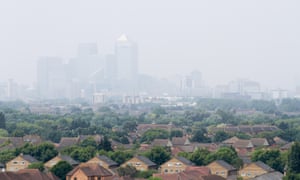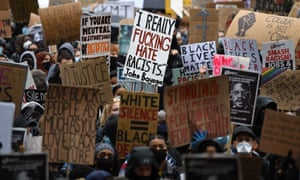British Airways has started legal proceedings against the government in its bid to overturn quarantine rules due to take effect in the UK from Monday.
BA’s owner IAG has sent a pre-action protocol letter setting out why it believes the moves, which will force air passengers arriving from abroad to self-isolate for 14 days, are illogical and unfair.
Airlines and travel firms have protested in vain against the new Home Office-led regulations, which they have said come months late to stop the transmission of coronavirus and will kill off any nascent recovery in their industries.
You can read the full report from our transport correspondent Gwyn Topham here:
The government have announced a new support package for British overseas territories during the pandemic.
It includes repurposed military oxygen machines and funding for testing facilities and will be available across 14 overseas territories.
A 24/7 hotline to connect medics in the territories with global health experts will also be established.
“In times of crisis, the UK family always stands together and our package of support for the overseas territories not only benefits communities in the fight against coronavirus, but also in the long term,” said overseas territories minister Baroness Sugg.
“Whether that is helping them test for viruses, such as Zika and dengue, or supplying critical medical equipment to provide life-saving support to British people who live in some of the most remote locations in the world.”
Previously, tests had to be shipped overseas from territories including the Falkland Islands and Anguilla to be processed, including to the UK.
It is hoped the new testing machines and extra medical equipment will enable health services to receive same-day results.
Updated
The method of voting in the House of Commons last week resembled a “Gilbert and Sullivan farce rather than serious Westminster processes”, Dame Margaret Hodge has said.
Her comments come after MPs joined a 90-minute queue on Tuesday to vote to prevent the resumption of virtual voting.
The senior Labour backbencher told Sky News’ Sophy Ridge on Sunday:
I think watching last week, it was a Gilbert and Sullivan farce rather than serious Westminster processes that were taking place. What’s happening this week, which makes me so angry, [is] I’m now allowed a vote but I can’t take part in debates around legislation.
“So tomorrow there is a debate on virtual access and I would like to virtually take part in that debate. I’ve been told I can’t do that so I am being disenfranchised and discriminated against in a debate which is discussing my disenfranchisement and my discrimination. It’s just a nonsense.”
The Barking MP, 75, is currently shielding as she is in the age group that is most at risk from Covid-19.
Lunchtime summary
Here’s a roundup of the key UK coronavirus developments from this morning.
- The nationwide lockdown to prevent the spread of Covid-19 “should have happened earlier”, according to a Sage expert. Epidemiologist professor John Edmunds said he thought the government’s “situational awareness” would have made it difficult to impose the measures sooner, but that the delay “has cost a lot of lives”.
- In response, Matt Hancock said he was “sure” the decision to lock down on 23 March had not cost lives. Speaking on BBC One’s The Andrew Marr Show, Hancock said the government had “made the right decisions at the right time” but said lockdowns could be reimposed locally or nationally if infections rise significantly.
- Metropolitan police commissioner, Cressida Dick, has said she was “shocked” that a minority of people at an anti-racism protest in the capital had been violent towards officers yesterday. Shortly afterwards, the mayor of London, Sadiq Khan, urged those gathering at today’s demonstration to “do so safely” amid the coronavirus pandemic.
- The failure to consider air pollution as a factor in the higher rates of coronavirus deaths among minority ethnic groups has been deemed “astonishing” by critics of a Public Health England review. The comments came after a PHE report confirmed the disproportionate impact of Covid-19 on BAME communities but did not mention air pollution.
That’s it from me, Amy Walker, for a short while. I’ll be handing over to my colleague Haroon Siddique during lunchtime.
Updated
The failure to consider air pollution as a factor in the higher rates of coronavirus deaths among minority ethnic groups is “astonishing” and “wholly irresponsible”, according to critics of a Public Health England review.
The PHE report released on Tuesday confirmed the disproportionate impact of Covid-19 on people from ethnic minorities but did not mention air pollution.

Urban smog seen shrouding Canary Wharf from a residential estate in London. Photograph: Paul Lawrenson/Alamy Stock Photo/Alamy Stock Photo
Minorities in the UK, US and elsewhere are known to generally experience higher levels of air pollution, and there is growing evidence around the world linking exposure to dirty air exposure to increased coronavirus infections and deaths.
Scientists said air pollution should “absolutely” be considered and that it could have a double effect, with long-term exposure weakening lungs and hearts and short-term exposure potentially making viral infection more likely.
You can read the full report from our environment editor, Damian Carrington, here:
Sadiq Khan, the mayor of London, has cautioned that “Covid-19 is still a very real threat” and asked people to “consider ways of making your voice heard that doesn’t put yourself and others at risk” ahead of an anti-racism protest in the capital this afternoon.
In a Twitter post, Khan said:
Londoners of all ages, races and backgrounds joined millions of people around the world yesterday to come together peacefully. I stand with you. George Floyd’s brutal killing must lead to immediate and lasting change everywhere.
“The vast majority of protesters in London were peaceful. But this vital cause was badly let down by a tiny minority who turned violent. This is simply not acceptable, will not be tolerated and will not win the lasting and necessary change we desperately need to see.”
He urged those planning to protest today to “do so safely, peacefully and within the law” as well as to use hand-sanitiser, wear a face covering and to keep 2 metres apart from others.
Updated
The Greater Manchester mayor, Andy Burnham, and the Liverpool city region mayor, Steve Rotheram are holding a joint press conference following a report that suggested the R value had tipped above 1 in the north-west of England.
Burnham has said the mayors were not “conducting a blame exercise” but believed the new data was linked to the loosening of lockdown measures.
He also reemphasised his call for a regional mayor to sit on Cobra meetings, and said Greater Manchester was not in support of potential localised lockdowns because of the detrimental economic effects.
Steve Rotheram
(@MetroMayorSteve)The rise of the R rate for the North West above 1 is a worrying development. It is a warning sign that must be taken seriously.@AndyBurnhamGM have set out our the practical steps we want from Government moving forward 👇 pic.twitter.com/H6TAPAKBcy
On Friday, the report from scientists at Public Health England (PHE) and the University of Cambridge put R at 1.01 for the north-west and 1 for the south-west.
The north-west – including Liverpool and Manchester – is viewed as particularly concerning due to higher numbers of infections there, which would be projected to continue at the current rate.
Manchester Evening News’ politics and investigations editor, Jennifer Williams, is posting live updates from the conference. You can follow her here:
Jennifer Williams
(@JenWilliamsMEN)Andy Burnham starts by saying the PHE analysis on Friday showing the R has risen above 1 is a ‘significant development’, but he says it’s ‘important not to over react’
Updated
Single parents and workers from black, Asian and minority ethnic (BAME) groups have experienced the worst financial shocks as a result of the pandemic, analysis has revealed.
Research by the Institute for Social and Economic Research at the University of Essex shows that the earnings of households across the UK have fallen, with lowest earners suffering disproportionately.
Approaching half – 44% – of non-BAME individuals whose working hours have declined during the crisis have been furloughed, while 7% have found themselves unemployed.
By contrast, only 31% of BAME workers who have experienced a drop in the hours they are working have been furloughed, while more than 20% have lost their jobs.
You can read the full report from Observer reporter Jamie Doward here:
Updated
Protests against racial inequality in the aftermath of the police killing of George Floyd are to continue in the UK today, despite warnings that the mass gatherings posed “some risk” of new coronavirus infections.
Demonstrators are set to gather at the US embassy at 2pm in London, while thousands of people are also expected at a Black Lives Matter march in Bristol at the same time.
Events are also scheduled to take place in Glasgow, Edinburgh and Nottingham this afternoon.

Protesters hold placards at a Black Lives Matter demonstration in Parliament Square in central London on Saturday. Photograph: Daniel Leal-Olivas/AFP/Getty Images

Later in the day, police officers in riot gear shout to protestors in central London after flares were thrown at a police line near Downing Street. Photograph: Daniel Leal-Olivas/AFP/Getty Images
Earlier, health secretary Matt Hancock said British police were “not like” their American counterparts after thousands of people protested in London yesterday.
He told BBC One’s The Andrew Marr Show: “I think the police did a fantastic job, and I’m very proud of the British police for their professionalism, their restraint in the face of the tiny amount of violence – and I would stress it was a very small amount of violence – later on in the day.
“And I think that we can all be proud that the British police are not like the American police in this way and I think that’s a very good thing.”
Updated
Shadow foreign secretary Lisa Nandy has said the government cannot remain silent on police brutality in the United States.
Speaking on the BBC’s The Andrew Marr Show, Nandy said she had “no idea whether Donald Trump is a racist or not a racist”, but believed his response to mass protests after the police killing of George Floyd was an “election strategy”.
“In the run-up to the American elections, this is one of the ways that politicians try to activate their base,” said Nandy. “They divide people in order to try to advance their own cause and that’s actually one of the things that is so damaging about it.
“That’s crept into our politics in Britain in the last few years and we’re seeing under the cover of Covid; other countries trying to do something similar – rowing back on people’s freedoms, human rights, the rule of law, democracy.”
She added that she supported peaceful protesters against racism and police brutality in the UK, saying that demonstrations were “one of the most important things about living in a free society”.
“You cannot be silent in the face of racism and police brutality, and I think those young people are right to raise their voices and to demand change,” said Nandy.
Updated


